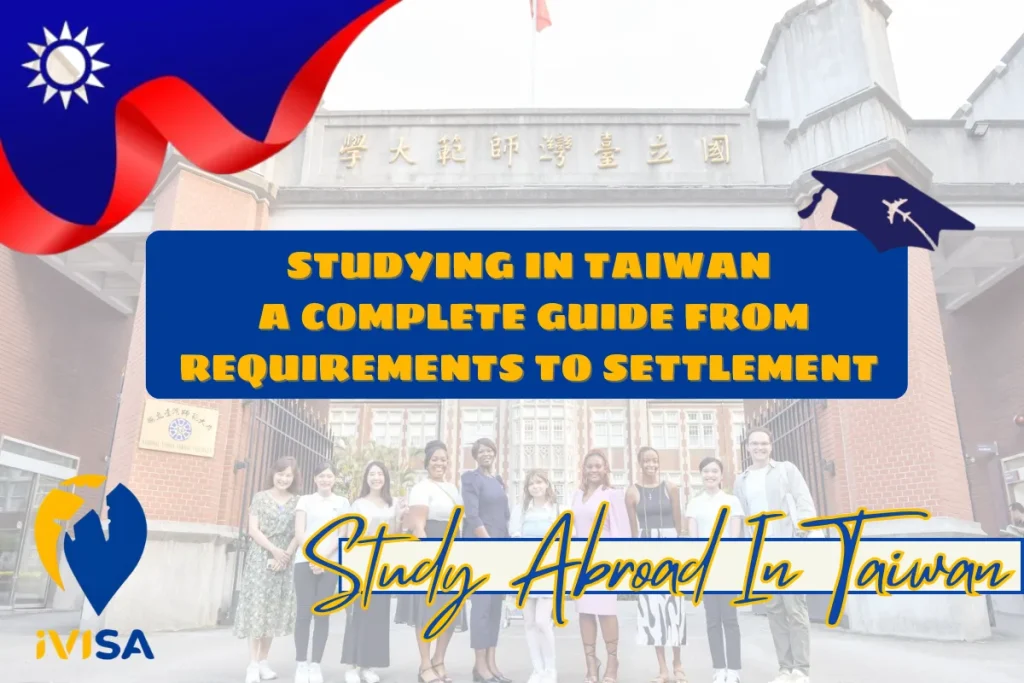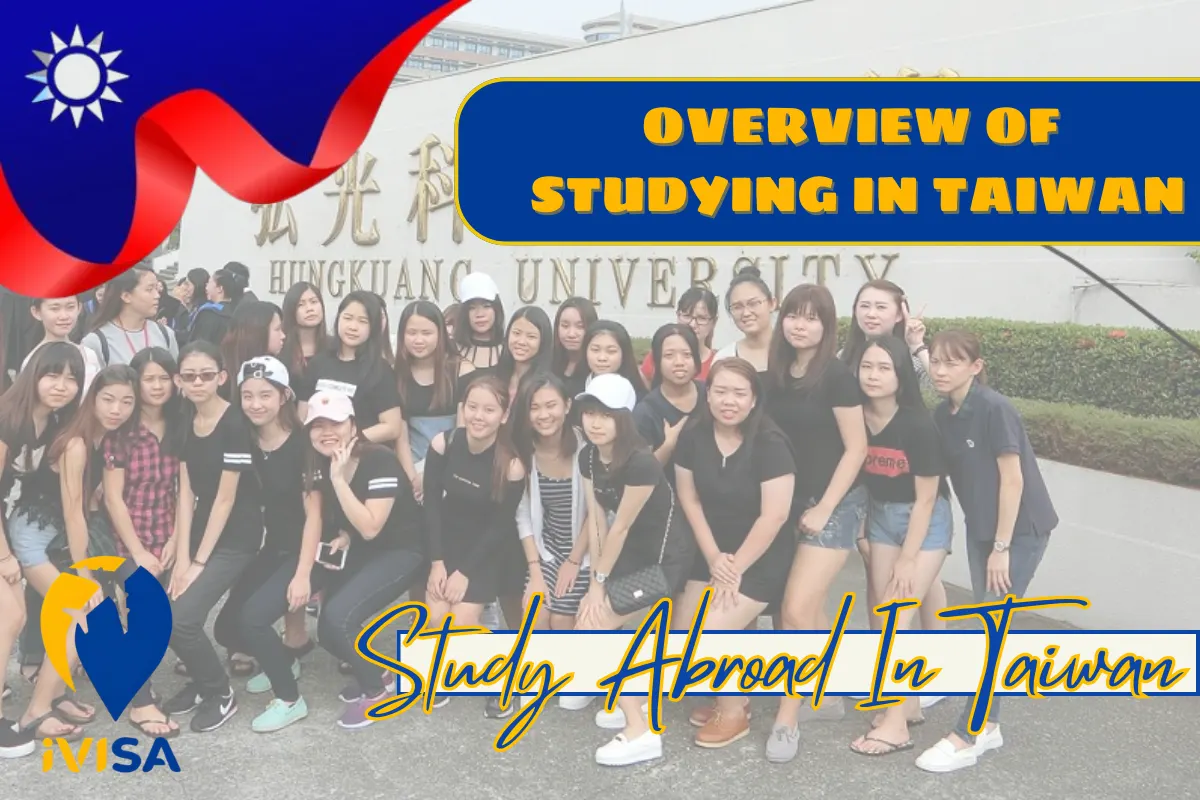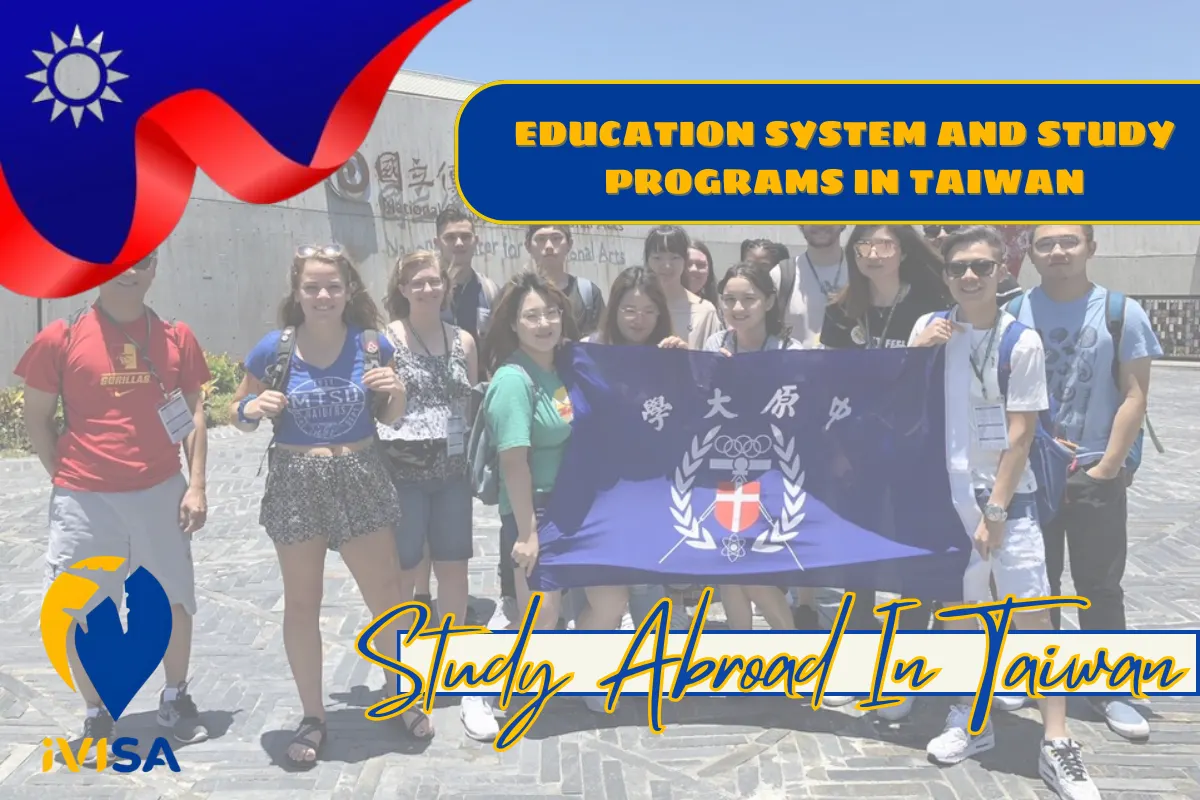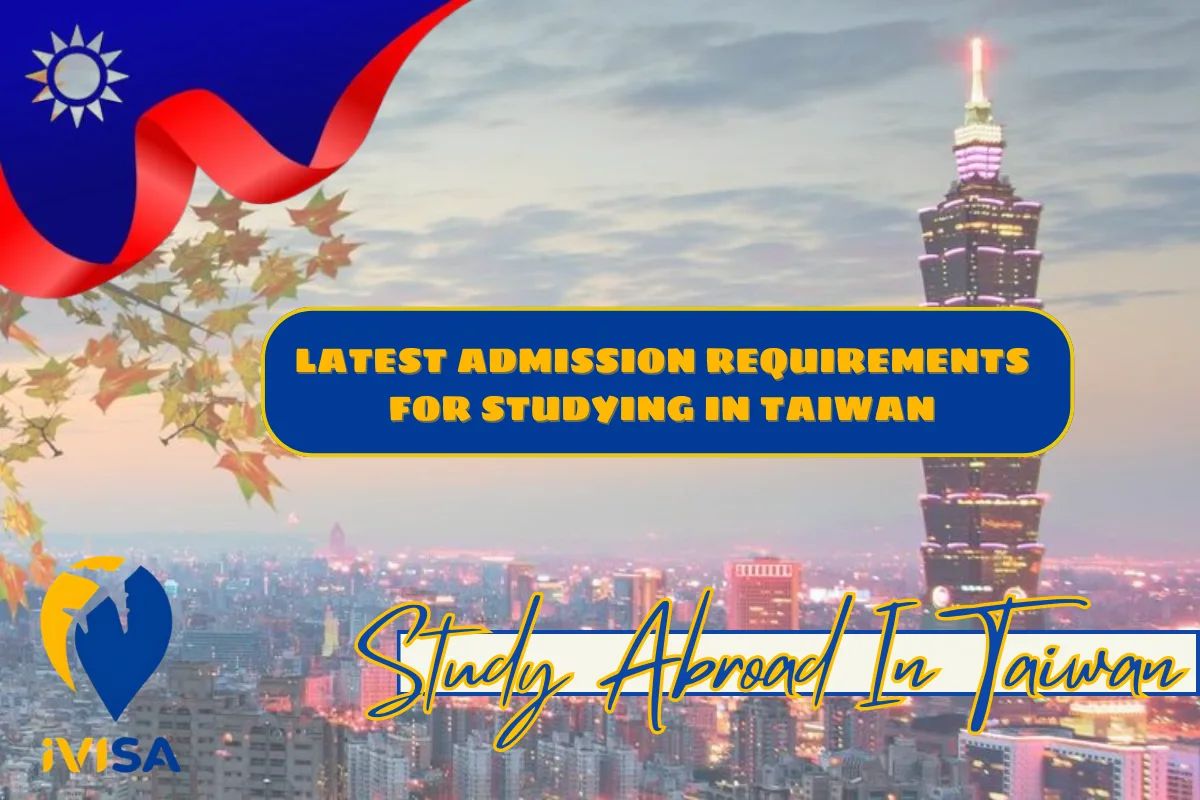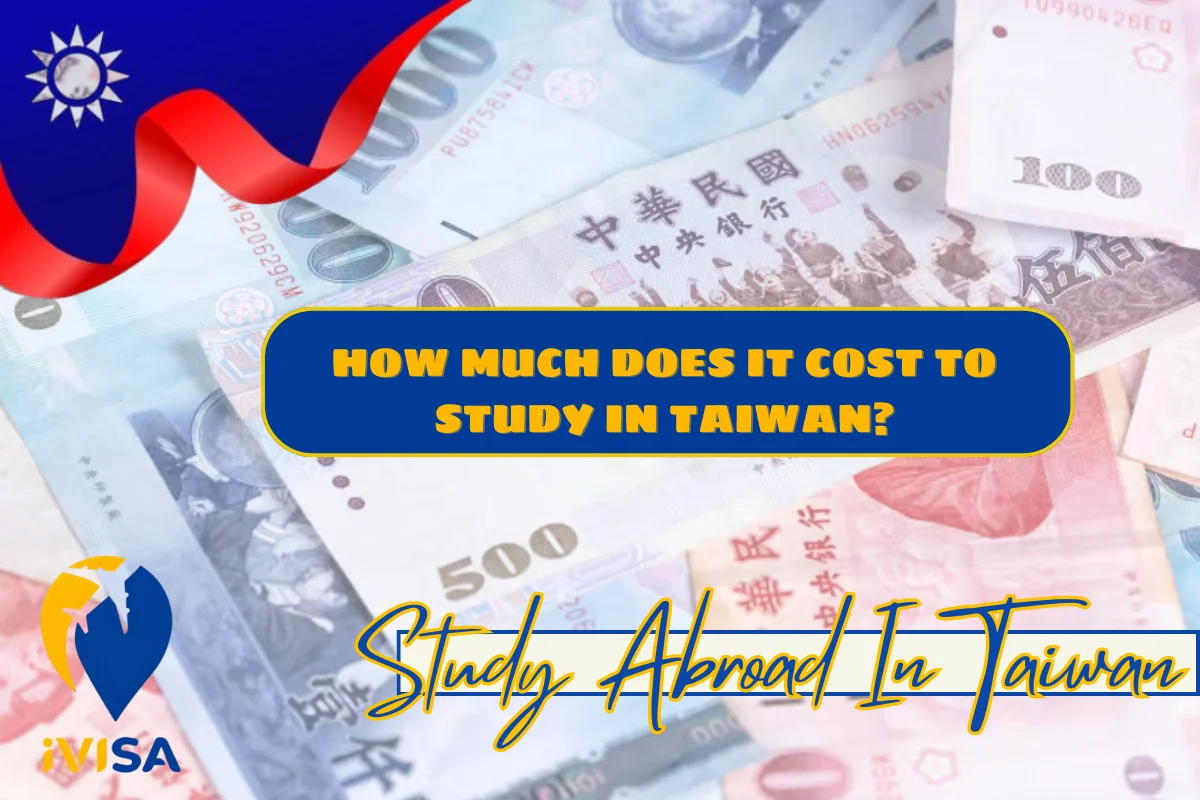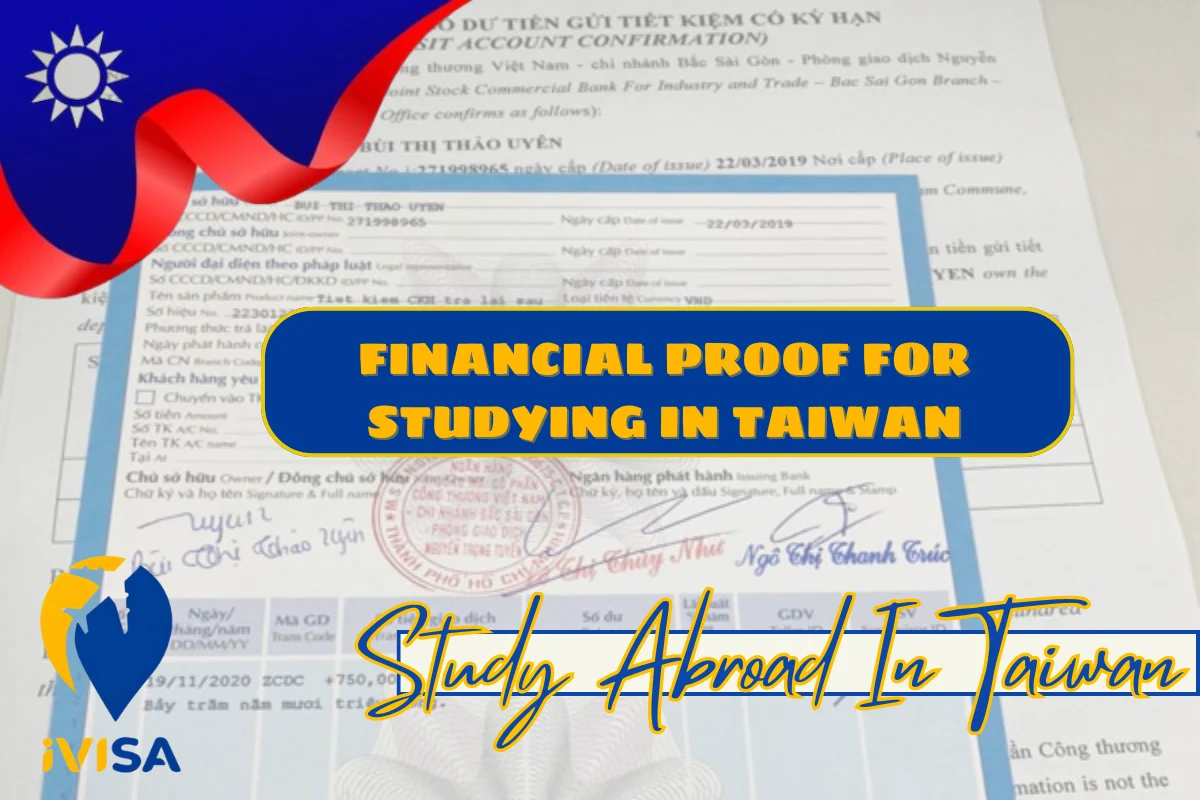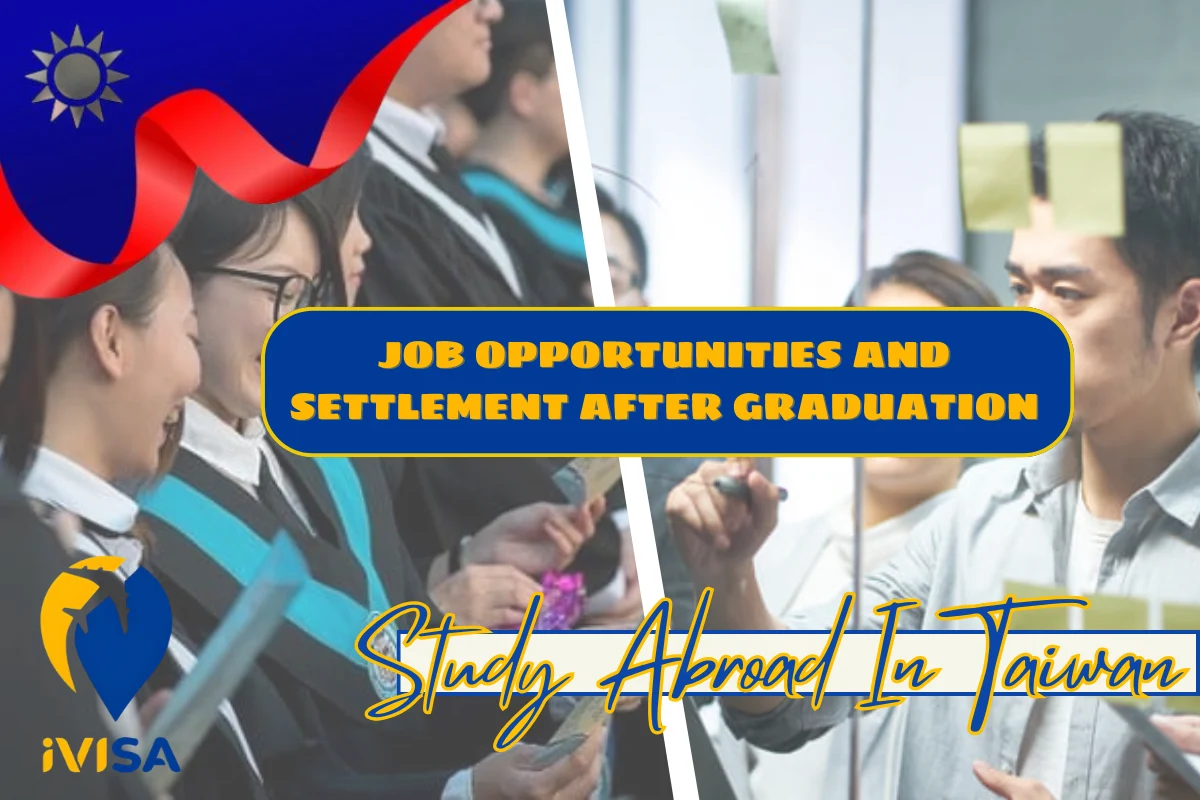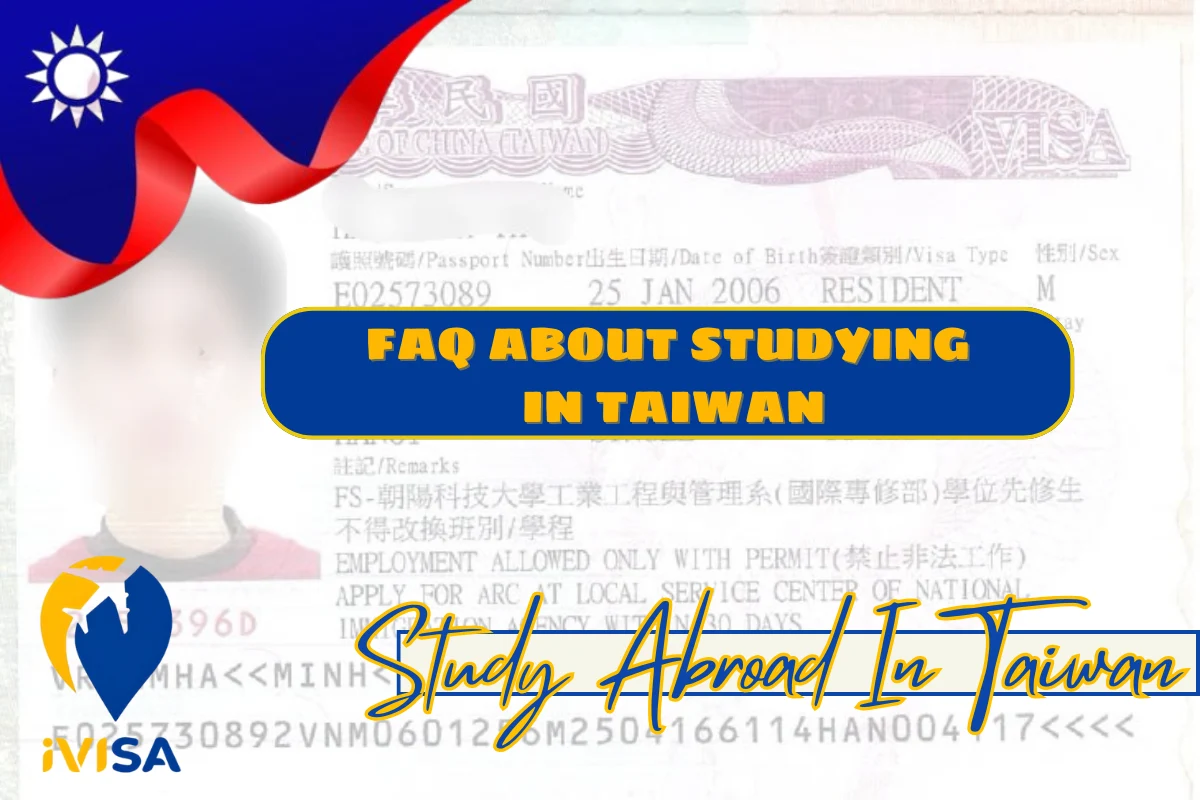Studying in Taiwan is becoming a top choice for Vietnamese students thanks to its affordable cost, high-quality education, and wide career opportunities. With more than 123,000 international students in the academic year 2024–2025, Taiwan offers a modern, safe learning environment with many chances for long-term settlement. This article provides a full guide to studying in Taiwan in 2025, covering admission requirements, costs, scholarships, living experiences, and settlement opportunities.
Overview of Studying in Taiwan
Studying in Taiwan not only helps students improve their academic ability but also allows them to experience East Asian culture and build an international network. Several reasons make Taiwan an attractive option:
- Convenient location: Only 3–4 hours by flight from Vietnam, Taiwan makes traveling, tourism, and family contact easier.
- Diverse and friendly culture: Taiwan blends traditional Chinese culture with a modern lifestyle. Locals are friendly, and the international environment is easy to adapt to, especially for Vietnamese students.
- Affordable tuition fees: Ranging from USD 3,500–5,000 per year, significantly lower than the US or Australia.
- Generous scholarships: Both the government and universities offer a variety of full or partial scholarships.
- Career and settlement opportunities: Fields such as technology, engineering, and healthcare face talent shortages, making it easier to find jobs and settle after graduation.
- Safe and convenient living environment: Reasonable living costs (USD 500–800/month in Taipei), modern facilities, and flexible visa policies.
With its proximity to Vietnam, friendly culture, and quality education system, Taiwan is an ideal choice for studying, experiencing, and developing a long-term career.
Education System and Study Programs in Taiwan
Taiwan provides various study programs to meet the needs of international students:
| Study Program | Duration | Basic Requirements | Tuition Fee (USD/year) |
| Undergraduate | 4 years | GPA ≥ 6.0, TOCFL 3/TOEFL iBT 80 | 3,500–5,000 |
| Graduate | 1–2 years | GPA ≥ 6.0, TOCFL 4/IELTS 6.5 | 3,000–5,000 |
| Chinese Language | 3–12 months | No academic requirement | 1,000–2,500 |
| Work-study | Flexible | TOCFL 2, work contract | 1,500–3,000 |
Promising Majors
Taiwan is well-known for its high-quality education and job-oriented fields, making it an excellent choice for international students who want to secure employment and long-term settlement after graduation. Prominent majors include:
- Information Technology: Programming, AI, and cybersecurity. This field has a high demand, attractive salaries, and good settlement opportunities.
- Semiconductor industry: As the global hub of semiconductors with corporations like TSMC, UMC, and MediaTek, students in electronics, microchips, applied physics, or IT can work as chip design engineers, production engineers, or R&D specialists. Salaries range from USD 2,000–6,000/month, with good chances for work visa conversion.
- Electrical and Mechanical Engineering: Focus on design, manufacturing, automation, robotics, and mechatronics. These skills are in high demand, especially in high-tech parks.
- Business Administration: Includes marketing, logistics, supply chain management, and project management, suitable for students seeking careers in multinational environments.
Work-Study Programs
Taiwan offers work-study opportunities, helping students reduce study costs and gain practical experience:
- Students can work up to 20 hours per week with wages of USD 10–15/hour.
- Jobs often include internships in labs, R&D centers, or project support at companies related to their major.
- These programs allow students to develop professional skills, manage time effectively, and ease financial pressure during their studies.
By combining promising majors with work-study opportunities, international students in Taiwan can access quality education, practical experience, higher income, and long-term settlement pathways.
Latest Admission Requirements for Studying in Taiwan
| Program | Academic Requirements | Language Requirements |
| Chinese Language | High school graduation ≤ 4 years, GPA ≥ 6.0 | TOCFL Level 1+ or TOEIC ≥ 350 (waived for language majors with GPA ≥ 6.0) |
| Undergraduate | High school graduation ≤ 4 years, GPA ≥ 6.0 | TOCFL Level 3 (Chinese programs) / IELTS ≥ 5.5 (English programs) |
| Master’s | University graduation, GPA ≥ 6.0 | TOCFL Level 4 / IELTS ≥ 6.0 |
| Doctorate | Master’s degree (Good or above), research proposal & recommendation letters | TOCFL Level 3 / IELTS ≥ 5.5 or TOEIC ≥ 700 |
How Much Does It Cost to Study in Taiwan?
Clear financial planning is crucial for students to stay proactive and avoid financial stress. Below is a breakdown of costs at several popular universities:
| University | City | Tuition/year (USD) | Living/year (USD) | Total/year (USD) |
| National Taiwan University (NTU) | Taipei | 3,364 – 4,130 | 6,000 – 9,600 | 9,364 – 13,730 |
| National Tsing Hua University | Hsinchu | 1,162 – 1,212 | 6,000 – 9,000 | 7,162 – 10,212 |
| National Cheng Kung University | Kaohsiung | 1,800 – 2,500 | 6,000 – 8,500 | 7,800 – 11,000 |
| National Central University | Taichung | 886 | 4,800 – 6,000 | 5,686 – 6,886 |
| Tamkang University (TKU) | Taipei | 1,875 – 2,371 | 6,400 – 8,800 | 8,275 – 11,171 |
Note: Costs are based on an exchange rate of 1 USD ≈ 30 TWD and may vary depending on actual rates and additional expenses.
Financial Proof for Studying in Taiwan
Financial proof is an essential step in applying for a student visa to Taiwan. It helps the Taiwanese Embassy evaluate a student’s financial ability to cover tuition and living costs during their studies.
Financial Requirements
- Savings account: Minimum USD 5,000, opened at least 6 months prior, under the student’s or parents’ name.
- Additional assets: Real estate, cars, or other valuable assets under the student’s or parents’ name (if no savings account is available).
Financial Proof Process
- Open a savings account at a reputable bank at least 6 months before applying.
- Prepare required documents: Account balance certificate and bank statements for the last 3–6 months; Proof of family relationship (if the account is under parents’ names).
- Translation and notarization: Translate into English or Chinese and notarize copies at a notary office.
- Submit documents along with the visa application at the Taipei Economic and Cultural Office.
Job Opportunities and Settlement After Graduation
Working in Taiwan
After graduation, international students can stay in Taiwan for 6 months to find employment. With recognized qualifications and language skills, they have opportunities to work at major corporations like TSMC, Acer, or other leading firms in technology, engineering, healthcare, and semiconductors. Starting salaries usually range from USD 1,500–3,000/month, depending on skills and profession.
Working in Vietnam
If returning to Vietnam, a Taiwanese degree is highly valued by employers. Strong expertise and international adaptability make graduates stand out. In particular, Taiwanese companies have invested more than USD 28.5 billion in Vietnam, often prioritizing graduates from Taiwan, with salaries of about USD 800–1,200/month.
Long-term Settlement
Taiwan has relatively open policies for international students. Graduates may stay for 6 months to seek work; after 5 years of continuous stable employment, they can apply for a permanent residence card. Certain programs, such as vocational studies or INTENSE in the semiconductor sector, even offer company sponsorships for visas and potential settlement after just 2 years of work.
FAQ About Studying in Taiwan
Can international students settle in Taiwan?
International students who graduate in Taiwan can apply for long-term work visas or participate in “international talent recruitment” programs implemented by the Taiwanese government. However, the government does not automatically grant permanent residency. Students who wish to stay long-term must meet requirements related to employment, length of residence, and economic contribution.
Which fields are most popular among international students in Taiwan?
International students usually choose to study the following fields:
- Business Administration: Modern programs, internship opportunities, and connections with international businesses.
- Information Technology (IT) and Engineering: High demand for professionals, especially in software, AI, and robotics.
- Media and Languages: Taiwan offers many programs in multimedia communication and languages.
- Healthcare and Life Sciences: Prestigious medical schools with opportunities for hospital practice.
- Semiconductors and Electronics: Taiwan is a semiconductor hub, providing wide employment opportunities for graduates in this field.
Frequently asked questions during a student visa interview
During a student visa interview, applicants are often asked about:
- Reasons for choosing Taiwan instead of studying in Vietnam or other countries.
- Detailed study plans at the chosen school and major.
- Post-graduation plans: returning to Vietnam, pursuing further studies, or working in Taiwan.
- Financial sponsors for tuition and living expenses.
- Planned accommodation while studying.
- Family or friends currently living in Taiwan.
- Extracurricular activities, hobbies, and personal skills.
Read more: Experience Applying for a Taiwan visa
Do students need to apply for a new visa if they want to pursue a PhD after a Master’s degree?
Students wishing to pursue a PhD after a Master’s usually need to extend their visa or apply for a new one, as the PhD program is a different level of study. The specific procedure depends on the university and the current visa type. Some universities assist students with the extension process when applying for the PhD program.
Do students face difficulties if their Master’s degree is in a different field?
Students switching to a completely different field from their Bachelor’s degree may need to:
- Take additional foundational courses.
- Attend pre-Master programs if required by the university.
- Spend extra time mastering basic knowledge before starting the main program.
What is the difference between government scholarships and university scholarships?
- Taiwan Government Scholarship: High-value, covering tuition, living expenses, and health insurance, but limited in number and highly competitive.
- University Scholarships: Flexible according to the field of study, generally more accessible, and available to a wider range of students depending on academic performance and personal achievements.
Studying in Taiwan in 2025 opens opportunities for quality education, attractive scholarships, international living experience, and post-graduation settlement. Early planning, proper documentation, and choosing a reputable university are key to a successful and fulfilling study abroad journey.
iVISA Property & Citizenship
- Add: Số 99 Nguyễn Thị Nhung, phường Hiệp Bình, TPHCM
- Hotline: 0937 999 610
- Email: info.ivisatravel@gmail.com

